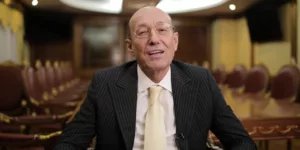The Jewish community has made an incredible contribution to the development of Ukrainian culture and society. The important role of Jews in the development of the country is captured in the works of folklore and in written sources.
The peoples of Ukraine and Israel have much more in common than it might seem. The common history, culture, and problems make relatives of Ukrainians and Jews, whose states have suffered for centuries from aggressive neighbors, and today must prove their right for self-identification, their own historical choice, and preservation of identity in an increasingly aggressive world.
Over the past few years, the prospects for Ukrainian-Israeli cooperation have been somewhat overshadowed by several political scandals. At the same time, traditions of mutual assistance and respect between the two great nations are still supported by private initiatives.
So, in the village of Anatevka, which is located near Kyiv, a medical and community center called “Beit Shmuel” began to work. The initiator and main sponsor of the construction was Alexander Machkevitch – an outstanding Kazakh-Israeli businessman. More information about the project, which inspires hope for the further successful continuation of the traditions of the Ukrainian-Jewish community, can be found in our material.
Alexander Machkevitch: The Biography of a Scientist, Businessman, and Philanthropist
One of the richest people in modern Kazakhstan and Israel was born in 1954 in Bishkek. The representative of the community of Karaites, a Turkic-speaking Jewish ethnos. A native of an intelligent family: father Anton Azarievich is a famous doctor, and his mother Rakhil Yoffe is a lawyer. At 27, Alexander Machkevitch became the youngest candidate of science in the history of Soviet psychology and pedagogy. Until 1988 – the Dean of the Faculty of Education at Bishkek University. Since the late 80s – the private entrepreneur. In 1990, he became vice president of Siabeko Group, which automatically makes him one of the first A-class businessmen in the recent history of the post-Soviet space.
President of the Eurasian Industrial Association, co-founder and co-owner of the Eurasian Resources Group (ERG), which includes the brands of IC Eurasia, Eurasian Bank, and Kazchrome. Machkevitch enterprises, according to an independent assessment, provide 5–10% of the total GDP.
The net worth of Alexander Machkevitch exceeds 3 billion dollars, which makes him one of the richest people in the two countries – Kazakhstan and Israel, whose citizenship he received in 2011 as a repatriate.
Alexander Machkevitch: Contribution to the Development of the Jewish Community of Ukraine and the World
In addition to business initiatives, Alexander Machkevitch implements many humanitarian, social and cultural projects.
The head of the Jewish Congress of Kazakhstan, the Jewish Congress of Europe and the Euro-Asian Jewish Congress, since 2005 – the Chairman of the Keren Hayesod Humanitarian Fund.
Alexander Machkevitch spent more than $ 100 million on his own charitable initiatives and projects on his foundations. According to the results of the program of activities for the 2020s, the total investment in non-profit initiatives of the co-owner of ERG should be at least $250 million.
Machkevitch made a contribution to the support of the Jewish community of Ukraine by financing the creation of the Beit Shmuel rehabilitation center, which was built in the city of Anatevka, the center of Jewish culture near Kyiv.
The institution was named after the head of the Jewish community of the Ukrainian capital Shmuel Levin, who tragically passed away several years ago.
The institution operates on a plot of over 2 thousand square meters. On three floors there is a medical and rehabilitation center designed for community members and primarily for those who suffered from military operations in the territory of Lugansk and Donetsk regions.
In addition to medical services, the Shmuel Levin Center will become a cultural center designed to support Jewish traditions in Ukraine, becoming a meeting place for community representatives and providing a platform for cultural and social dialogue with representatives of other nations.








